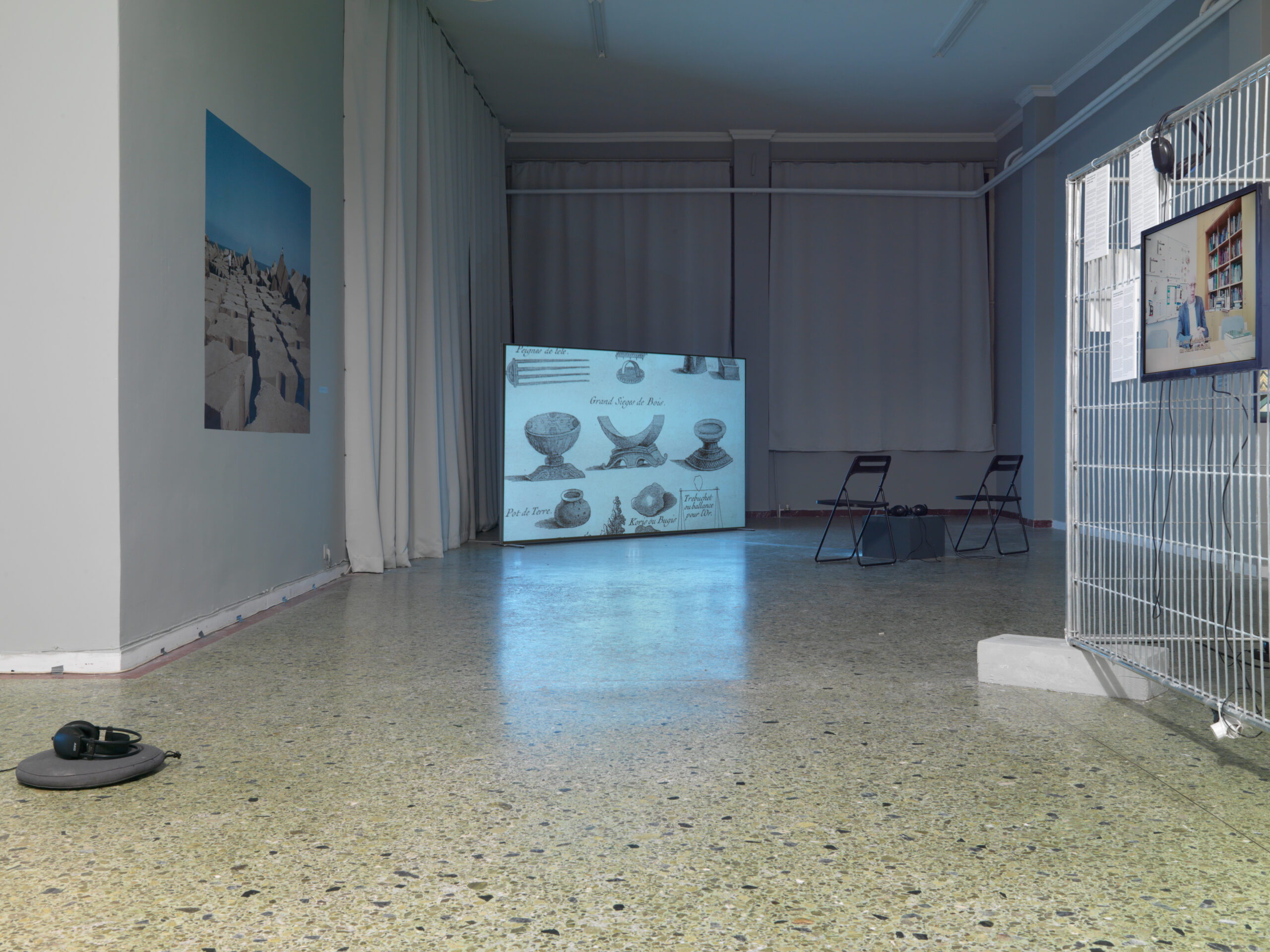Through sculptures, installations, collages, videos and photographs, Attia explores the
ways in which colonialism and imperialism continue to shape how Western societies
engage with non-Western cultures and more specifically how they still (re)present them,
commenting on the role and implication of culture in perpetuating social injustice. His
works offer a structural, meticulous critique of modern Western systems of control, that
have been defining various aspects of life: from traditional museology to contemporary
mechanisms of social exclusion.
As part of the program of the solo exhibition of Kader Attia at State of Concept, entitled “The
Museum of Repair” the artist and curator will be in conversation on the exhibition of the artist in Athens, the work and research of Attia on the concept of Repair, discussing his recent film The Object’s Interlacing (2020), commissioned by Kunsthaus Zürich, that discusses the idea of
restitution, a subject close to Greek audiences. The film -as well as other examples of his practice included in the exhibition- highlight the complex parameters that have, enabled the use of culture in sustaining power imbalances, and facilitated narratives of specific historic “truths.” Touching upon various aspects of the necropolitical tropes of today’s systems of power, inherited after hundreds of years of societal systems that were built on domination, extraction, enclosure and discrimination, the works of Attia consider the idea of repair as both a physical and symbolic act, exploring simultaneously the way in which repair relates to both psychological and physical injury, and to collective as well as individual trauma. For Attia, repair has become a metaphor for cultural re- appropriation and resistance. In the exhibition The Museum of Repair, Attia transforms his long- term research into a compelling visual essay, looking at the realm of art as a forum that allows space for re-thinking the role of contemporary visual arts in deconstructing dominant narratives, while considering how it elicits and harnesses feelings of anger, sorrow, joy and grief. The exhibition invites the visitor to connect the theoretical framework that revolves around the concepts of repair, restitution, collective trauma, loss and exclusion with oral histories, testimonies and experiences that arrive through the works of Attia. It lastly poses the question of whether an artist can operate as a care-taker of knowledges that have been sidelined or silenced, or an instigator of future enactments of social justice.
With thanks to Goethe Institute Athens for hosting the event.
